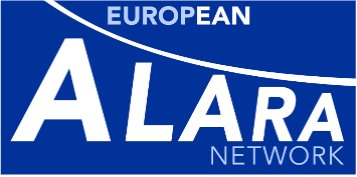Workshops
Feed back experience shows that there is in Europe a need for Workshops which are neither a big congress nor a collection of working groups with lots of different meetings, but which over a few days provide a forum for a few dozen experts to exchange feedback experience and to identify problems that need further research or development. Therefore the Network has organised and will continue to organise such type of Workshop once a year.
The subject is selected in order to cover domains where the Network Steering Committee Group estimates that many improvements in terms of ALARA implementation may be found. All papers are invited presentations. To promote discussions, appropriate time is made available for work in small groups and the number attending the workshop is limited to a few dozens experts. The language of the Workshops is English.
At the end of each Workshop the chairpersons and the working groups propose to the participants some recommendations to the EC and national regulatory bodies and other stakeholders corresponding to the feedback from the sessions of the Workshop. These recommendations are validated by the Network Steering Committee Group and send to the Commission and to other appropriate stakeholders.
- "ALARA and Decommissioning", Saclay, France, December 1997
- "Good Radiation Practices in Industry and Research", Chilton, UK, November 1998
- "Managing Internal Exposure", Neuherberg, Germany, November 1999
- "Management of Occupational Radiological and Non-radiological Risks: Lessons to be Learned", Antwerp, Belgium, November 2000
- "Industrial Radiography: Improvements in Radiation Protection", Rome, Italy, October 2001
- "Occupational Exposure Optimisation in the Medical and the Radiopharmaceutical Sectors", Madrid, Spain, October 2002
- "Decommission of Installations and Site Remediation", Arnhem, The Netherlands, October 2003
- "Occupational Radiological Protection Control through Inspection and Self-assessment", Uppsala, Sweden, September 2004
- "Occupational Exposure to Natural Radiation", Augsburg, Germany, October 2005
- "Experience and new Developments in Implementing ALARA in Occupational, Patient and Public Exposures", Prague, Czech Republic, 12-15 September 2006
- "ALARA in Radioactive Waste Management", Athens, Greece, 9-11 April 2008
- "ALARA issues arising for Safety and Security of Radiation Sources and Security Screening Devices", Vienna, Austria, 21-23 October 2009
- "ALARA and the Medical Sector", Oscarborg Fortress, Norway, 7-10 June 2011
- "ALARA in existing exposure situations", Dublin Castle, Ireland, 4-6 September 2012
- "Improving ALARA Culture through Education and Training", Rovinj, Croatia, 7-9 May 2014
- "ALARA in Industrial Radiography", Bern, Switzerland, 14-16 March 2016
- "ALARA in Emergency Exposure Situations", Lisbon, Portugal, 15-17 May 2017
- "ALARA for Decommissioning and Site Remediation", Marcoule, France, 11-13 March 2019
- "Innovative ALARA Tools", Athens, Greece, 27-29 November 2019
- "ALARA for interventional radiology and nuclear medicine", Vienna, Austria, 2-4 October 2022
- "Optimization of the transport of radioactive material", Petten, The Netherlands, 23-25 April 2025
EAN 20th workshop ALARA for interventional radiology & nuclear medicine
Vienna, Austria, 2-4 October 2023

